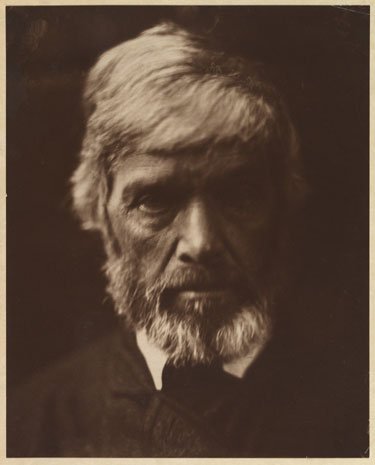Carlyle On Government
Government, Modern World, Thomas Carlyle
LATTER-DAY PAMPHLETS.by Thomas Carlyle NO. I. THE PRESENT TIME. [February 1, 1850.]:
I say, it is the everlasting privilege of the foolish to be governed by the wise; to be guided in the right path by those who know it better than they. This is the first “right of man;†compared with which all other rights are as nothing,—mere superfluities, corollaries which will follow of their own accord out of this; if they be not contradictions to this, and less than nothing! To the wise it is not a privilege; far other indeed. Doubtless, as bringing preservation to their country, it implies preservation of themselves withal; but intrinsically it is the harshest duty a wise man, if he be indeed wise, has laid to his hand. A duty which he would fain enough shirk; which accordingly, in these sad times of doubt and cowardly sloth, he has long everywhere been endeavoring to reduce to its minimum, and has in fact in most cases nearly escaped altogether. It is an ungoverned world; a world which we flatter ourselves will henceforth need no governing. On the dust of our heroic ancestors we too sit ballot-boxing, saying to one another, It is well, it is well! By inheritance of their noble struggles, we have been permitted to sit slothful so long. By noble toil, not by shallow laughter and vain talk, they made this English Existence from a savage forest into an arable inhabitable field for us; and we, idly dreaming it would grow spontaneous crops forever,—find it now in a too questionable state; peremptorily requiring real labor and agriculture again. Real “agriculture†is not pleasant; much pleasanter to reap and winnow (with ballot-box or otherwise) than to plough!
Who would govern that can get along without governing? He that is fittest for it, is of all men the unwillingest unless constrained. By multifarious devices we have been endeavoring to dispense with governing; and by very superficial speculations, of laissez-faire, supply-and-demand, &c. &c. to persuade ourselves that it is best so. The Real Captain, unless it be some Captain of mechanical Industry hired by Mammon, where is he in these days? Most likely, in silence, in sad isolation somewhere, in remote obscurity; trying if, in an evil ungoverned time, he cannot at least govern himself. The Real Captain undiscoverable; the Phantasm Captain everywhere very conspicuous:—it is thought Phantasm Captains, aided by ballot-boxes, are the true method, after all. They are much the pleasantest for the time being! And so no Dux or Duke of any sort, in any province of our affairs, now leads: the Duke’s Bailiff leads, what little leading is required for getting in the rents; and the Duke merely rides in the state-coach. It is everywhere so: and now at last we see a world all rushing towards strange consummations, because it is and has long been so!
 
I do not suppose any reader of mine, or many persons in England at all, have much faith in Fraternity, Equality and the Revolutionary Millenniums preached by the French Prophets in this age: but there are many movements here too which tend inevitably in the like direction; and good men, who would stand aghast at Red Republic and its adjuncts, seem to me travelling at full speed towards that or a similar goal! Certainly the notion everywhere prevails among us too, and preaches itself abroad in every dialect, uncontradicted anywhere so far as I can hear, That the grand panacea for social woes is what we call “enfranchisement,†“emancipation;†or, translated into practical language, the cutting asunder of human relations, wherever they are found grievous, as is like to be pretty universally the case at the rate we have been going for some generations past. Let us all be “free†of one another; we shall then be happy. Free, without bond or connection except that of cash-payment; fair day’s wages for the fair day’s work; bargained for by voluntary contract, and law of supply-and-demand: this is thought to be the true solution of all difficulties and injustices that have occurred between man and man.
 
To rectify the relation that exists between two men, is there no method, then, but that of ending it? The old relation has become unsuitable, obsolete, perhaps unjust; it imperatively requires to be amended; and the remedy is, Abolish it, let there henceforth be no relation at all. From the “Sacrament of Marriage†downwards, human beings used to be manifoldly related, one to another, and each to all; and there was no relation among human beings, just or unjust, that had not its grievances and difficulties, its necessities on both sides to bear and forbear. But henceforth, be it known, we have changed all that, by favor of Heaven: “the voluntary principle†has come up, which will itself do the business for us; and now let a new Sacrament, that of Divorce, which we call emancipation, and spout of on our platforms, be universally the order of the day!—Have men considered whither all this is tending, and what it certainly enough betokens? Cut every human relation which has anywhere grown uneasy sheer asunder; reduce whatsoever was compulsory to voluntary, whatsoever was permanent among us to the condition of nomadic:—in other words, loosen by assiduous wedges in every joint, the whole fabric of social existence, stone from stone: till at last, all now being loose enough, it can, as we already see in most countries, be overset by sudden outburst of revolutionary rage; and, lying as mere mountains of anarchic rubbish, solicit you to sing Fraternity, &c., over it, and to rejoice in the new remarkable era of human progress we have arrived at.
via The Framed Maelstrom.




